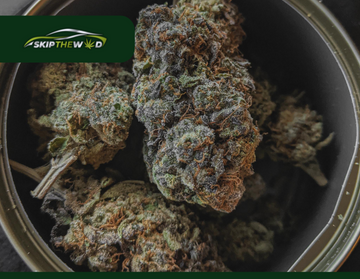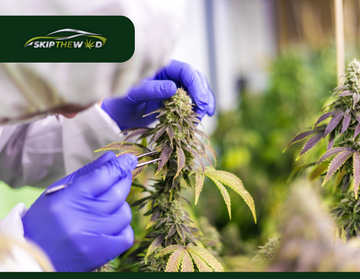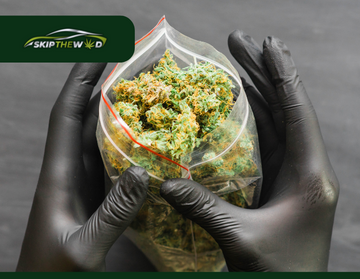Pediatric epilepsy, characterized by recurrent seizures in children, poses a complex challenge for families and healthcare providers alike. Traditional antiepileptic drugs (AEDs) are often effective for managing seizures but can come with significant side effects and may not work for every child. In light of these challenges, there is growing interest in alternative therapies, particularly medicinal cannabis. This article explores the role of medicinal cannabis in treating pediatric epilepsy, emphasizing the ethical considerations and medical insights associated with this emerging treatment option.
Understanding Pediatric Epilepsy
Pediatric epilepsy encompasses a variety of seizure disorders that can differ widely in their manifestations, severity, and responses to treatment. Some common types include:
- Dravet Syndrome: A severe, genetic form of epilepsy that typically manifests in the first year of life. It is marked by prolonged seizures and developmental delays.
- Lennox-Gastaut Syndrome (LGS): This complex syndrome begins in early childhood and includes multiple seizure types, often accompanied by cognitive impairments.
- Benign Rolandic Epilepsy: Generally milder, this type often resolves by adolescence. Seizures commonly occur during sleep or upon waking.
Children with epilepsy frequently face numerous challenges, including cognitive and emotional difficulties, social stigma, and a diminished quality of life. As families seek more effective treatment options, many are exploring medicinal cannabis as a viable alternative.
The Role of Medicinal Cannabis in Pediatric Epilepsy
Medicinal cannabis comprises various cannabinoids, the most notable being tetrahydrocannabinol (THC) and cannabidiol (CBD). While THC is known for its psychoactive effects, CBD has gained prominence for its therapeutic potential, particularly in the context of epilepsy.
- 1. Mechanisms of Action:
- Cannabinoids like CBD are thought to interact with the body's endocannabinoid system, which plays a role in regulating various physiological processes. This interaction may help to modulate neurotransmitter release, potentially reducing seizure activity and improving overall neurological function.
- 2. Potential Benefits:
- Parents and caregivers often report positive changes in seizure frequency and severity when using CBD. Some families have observed improvements in behavior and mood, contributing to an enhanced quality of life for both the child and their family. These anecdotal reports have fueled further interest in the use of cannabis for pediatric epilepsy.
Ethical Considerations
The use of medicinal cannabis in children necessitates careful ethical considerations, including:
- 1. Informed Consent:
- Parents must be adequately informed about the potential benefits and risks of using medicinal cannabis for their child's condition. This involves understanding the available evidence, the nature of the treatment, and possible side effects.
- 2. Access and Equity:
- Access to medicinal cannabis varies significantly across regions, influenced by local laws and regulations. Families living in areas with restrictive cannabis laws may find it challenging to obtain these treatments, leading to inequities in care for children with epilepsy.
- 3. Stigma and Public Perception:
- Despite increasing acceptance of cannabis for medical use, some families may face stigma when choosing this treatment option. This social stigma can affect their mental health and create barriers to open discussions with healthcare providers.
- 4. Balancing Risks and Benefits:
- While the potential benefits of medicinal cannabis are compelling, it is essential to weigh these against possible risks, including adverse effects and interactions with other medications. Continuous monitoring and open communication between healthcare providers and families are crucial to ensuring the child's safety and wellbeing.
Medical Insights and Considerations
When considering medicinal cannabis as a treatment for pediatric epilepsy, several medical insights should be kept in mind:
-
1. Individualized Treatment:
Each child's response to cannabis may vary, making individualized treatment plans essential. Healthcare providers should take into account the child's specific condition, seizure types, and overall health when formulating a treatment strategy.
-
2. Monitoring and Safety:
Regular monitoring of the child's condition, seizure frequency, and any side effects is essential for anyone using medicinal cannabis. Establishing clear protocols for assessing the treatment's effectiveness and safety helps ensure a positive outcome.
-
3. Interdisciplinary Collaboration:
A collaborative approach involving pediatric neurologists, primary care providers, and cannabis specialists can enhance the quality of care for children with epilepsy. This teamwork ensures that families receive comprehensive support and guidance throughout the treatment process.
Conclusion
Medicinal cannabis presents a promising alternative for managing pediatric epilepsy, especially for those who do not respond adequately to traditional treatments. While the ethical and medical considerations surrounding its use are significant, continued exploration and dialogue can help shape its role in pediatric care.
Parents considering medicinal cannabis for their child's epilepsy should engage in open discussions with knowledgeable healthcare providers to navigate the complexities of treatment options. By fostering a commitment to ethical practice and patient-centered care, we can work towards the best possible outcomes for children affected by epilepsy.
For families looking to explore natural alternatives to support health and wellness, consider high-quality cannabis options from Skip the Weed. Our selection includes strains like Greasy Runtz strain and Frosted Grapes strain, known for their potential calming effects and suitability for managing symptoms associated with pediatric epilepsy. Trust Skip the Weed to provide reliable medicinal cannabis, ensuring that your loved ones receive the care they deserve.









